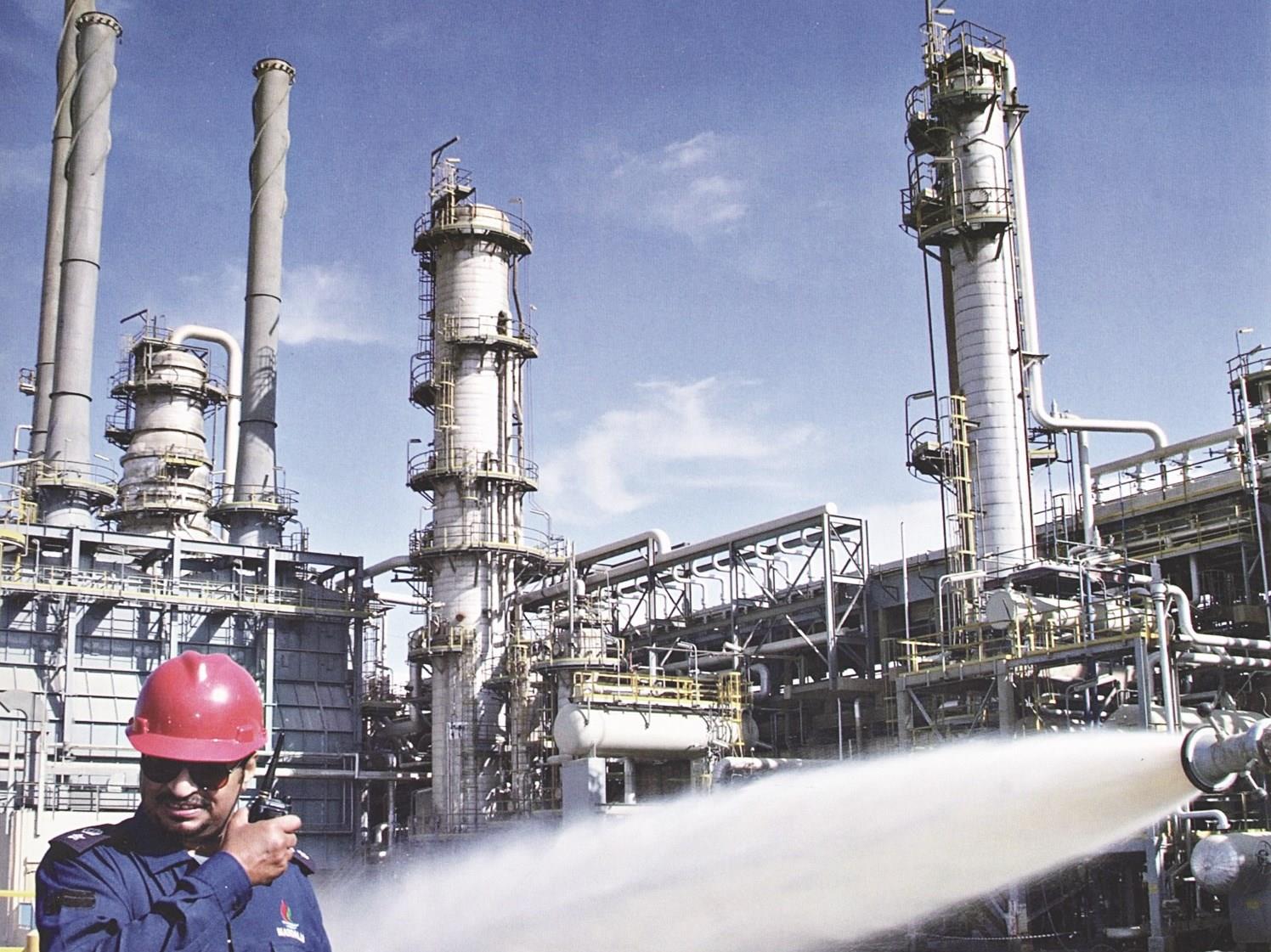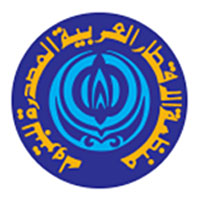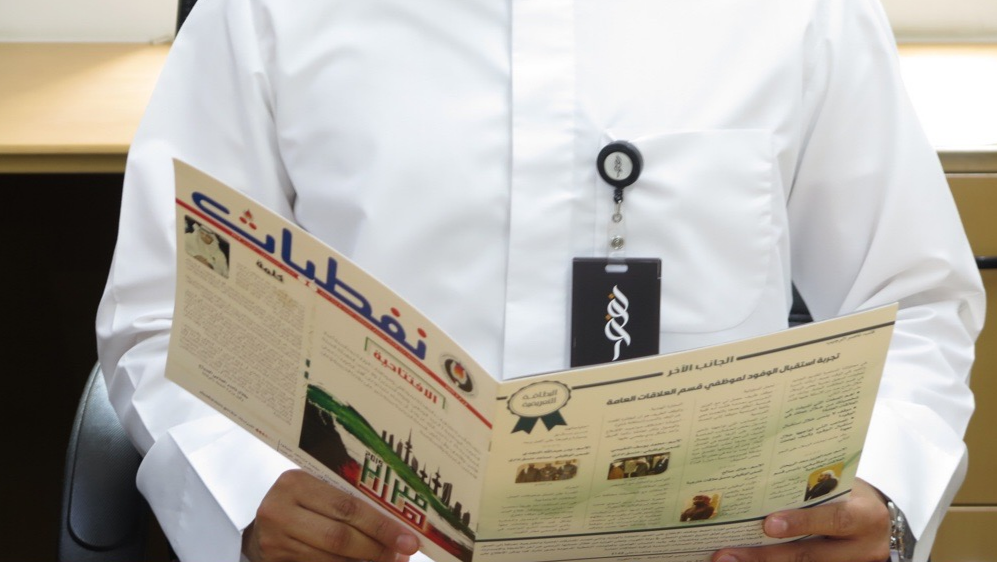
The Cooperation Council for the Arab States of the Gulf (GCC)
The establishment of the organization
 On the 25th of May 1981 Their Majesties and Highnesses the leaders of the United Arab Emirates, State of Bahrain, Kingdom of Saudi Arabia, Sultanate of Oman, State of Qatar, and State of Kuwait met in Abu Dhabi, United Arab Emirates. They reached an agreement in the form of a cooperative framework unifying and integrating the six member states into various fields.
On the 25th of May 1981 Their Majesties and Highnesses the leaders of the United Arab Emirates, State of Bahrain, Kingdom of Saudi Arabia, Sultanate of Oman, State of Qatar, and State of Kuwait met in Abu Dhabi, United Arab Emirates. They reached an agreement in the form of a cooperative framework unifying and integrating the six member states into various fields.
The decision was based on the mutual embodiment of historical, religious, social, and cultural ties that link the six states, and the geographic closeness. This was in the hopes of unifying the Arab region and as an answer to tackling to security and economic development in the area.
Objective of the organization
Unifying and integrating each respected member states various fields with the other countries.
To deepen and strengthen relations, cooperation’s between country members specialists of various fields.
To unify country members regulation in these fields:
Economic and financial affairs
Commerce, customs, and communications
Education and culture
Social and health affairs
Information and tourism
Legislative and administrative affairs
Stimulate scientific and technological progress in various fields, to establish joint ventures and encourage cooperation of the private sector, fields include:
Mining
Agriculture
Water and animal resources
Member countries
Bahrain
Kuwait
Oman
Saudi Arabia
Qatar
United Arab Emirates
OAPEC
The establishment of the organization
The Organization of Arab Petroleum Exporting Countries (OAPEC) is a regional inter•governmental organization established by an agreement signed in Beirut on January 9, 1968, by Kuwait, Libyan (Kingdom of Libya at that time) and the Kingdom of Saudi Arabia. The three founding members chose the state of Kuwait for the Organizations' domicile and headquarters.
Recognizing the role of Petroleum as a principal and basic source of its members' income, OAPEC is concerned with the development and prosperity of the world petroleum industry by fostering close and fruitful cooperation among its members.
It is guided by the belief in the importance of building an integrated petroleum industry as a cornerstone for future economic integration amongst Arab countries and contributes to the effective use of the resources of member countries through sponsoring joint ventures.
By 1982 the membership of the Organization increased to eleven Arab oil exporting countries. In 1986, Tunisia submitted its membership withdrawal request from the Organization. The Ministerial Council deliberated the request and agreed to suspend Tunisia's rights and obligations in OAPEC until such a time that Tunisia chooses to reactivate its membership.
Objective of the organization
 Take adequate measures for the coordination of the petroleum economic policies of its members.
Take adequate measures for the coordination of the petroleum economic policies of its members.
Take adequate measures for the harmonization of the legal systems in force in the member countries to the extent necessary to enable the Organization to carry out its activity.
Assist members to exchange information and expertise and provide training and employment opportunities for citizens of member countries where such possibilities exist.
Promote cooperation among members in working out solutions to problems facing them in the petroleum industry.
Utilize the member resources and common potentialities in establishing joint projects in various phases of petroleum industry such as may be undertaken by all the members of those of them that may be interested in such projects.
Member countries
Bahrain
Egypt
Iraq
Kuwait
Libya
Qatar
Saudi Arabia
Syrian
Tunisia
United Arab Emirates
OPEC
The establishment of the organization
The Organization of the Petroleum Exporting Countries (OPEC) was founded in Baghdad, Iraq in September 1960. The founding countries were the Islamic Republic of Iran, Iraq, the state of Kuwait, Kingdom of Saudi Arabia, and Venezuela.
OPEC is an organization enabling the co-operation of leading oil-producing countries, to collectively influence the global market and maximize returns on investment. The formation marked a turning point towards national sovereignty over natural resources. And the organization has been playing a prominent role in the global oil market and international relations.
OPEC statute distinguishes between the founding members and full-time members. To be accepted as a full-time membership a country needs to have a substantial net export of crude oil and have similar interests to member countries. They also need to be accepted by three fourths of the full members including the concurring votes of all founder members.
Although some countries that don’t qualify for full memberships can be associate members under special conditions.
Objective of the organization
Coordination and unification of the petroleum policies of its member countries.
Stabilization of the Oil markets
Secure an efficient, economic, and regular supply of petroleum to consumers.
A steady income for producers with a fair return on capital for those investing in the petroleum industry.
Member countries
Algeria
Angola
Congo
Ecuador
Iran
Iraq
Indonesia
Kuwait
Libya
Nigeria
Qatar
Saudis Arabia
United Arab Emirates
Venezuela
INTERNATIONAL ENERGY FORUM
The establishment of the organization
Established in Paris in July 1991, The International Energy Forum (IEF)was created to stabilize the global energetic market after both 1970s energy crises and 1980s oil surplus. One of the main priorities of IEF was to bring together member states and private corporations to increase awareness of national and international interests, and the workings of the market to avoid the instabilities of the previous two decades.
The establishment occurred after an Emergency meeting of producers and consumers would meet in a ministerial seminar, after it was agreed upon on October 1st, 1990, in a United Nation meeting.
The International Energy Forum (IEF) includes countries that make up more than 90% of the global supply of Oil and gas. The IEF includes members of the International Energy Agency which represents consumer countries in the OECD, the member countries of the Organization of petroleum Exporting Countries (OPEC). They also include influential and emerging in the forums which includes Brazil, China, India, Mexico, Russia, and South Africa.
The Forum and the global energy dialogue are supported by the permanent General Secretariat based in Riyadh, Kingdom of Saudi Arabia. Which initiates dialogues and cooperation among producers (represented by OPEC) and consumers (represented by the International Energy Agency) of petroleum and energy.
The General Secretariat also provides comprehensive data that includes studies and research work on the energy industry and related subjects. It works to improve the collection methods of data pertaining to oil/gas, and its dissemination.
Objective of the organization
The fostering of greater mutual understanding and awareness of common energy interests among its members
Increasing understanding of the benefits of stable and transparent energetic markets
For the health of the world economy
The security of energy supply and demand
The expansion of global trade
Investment in energy resources and technology
Identifying and promoting principles and guidelines that enhance energy market transparency, stability, and sustainability.
Narrowing the differences among energy producing, consuming and transit Member States on global energy issues and promoting improving understanding of their interdependency and the benefits to be gained from cooperation through inner dialogue among themselves and energy related industries.
Promoting the study and exchange of views on energy, technology, environmental issues, economic growth, development, and environmental issues.
Building trust and confidence through
Improved channels in sharing information among members
Facilitating the collection, compilation, analyses, and dissemination of
data, to increase market transparency, stability, and sustainability.
Member Countries:
Afghanistan • Algeria • Angola • Argentina • Australia • Austria
Bahrain •Bangladesh • Belgium• Brunei • Bulgaria • Burkina Faso
Canada • Chad • China • Comoros • Cyprus • Czech Republic
Denmark • Djibouti
Ecuador • Egypt • Eritrea • Ethiopia
Finland • France
Germany • Greece • Guinea
Hungary
India • Iran • Iraq • Ireland • Italy
Japan
Kazakhstan •Kuwait
Malaysia • Mali • Malaysia • Mauritania • Mexico • Morocco • Mozambique
Netherlands • New Zealand• Niger •Nigeria • Norway
Oman
Philippines • Poland
Qatar
Russia
Senegal • Singapore • Somalia • South Africa •Sudan • South Korea • Saudi Arabia • Switzerland
Tanzania • Tunisia • Turkey
Uganda • United Arab Emirates • United States • United Kingdom
Venezuela • Vietnam
Yemen
Zambia





